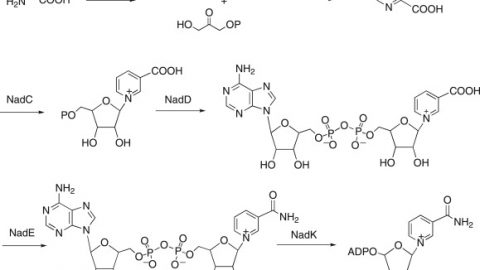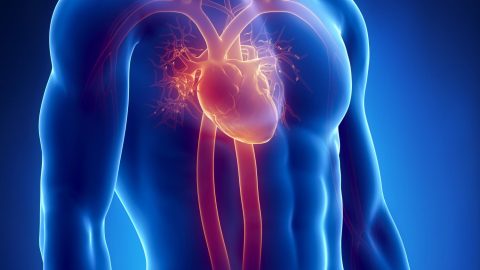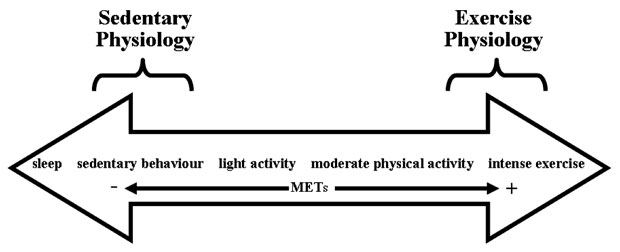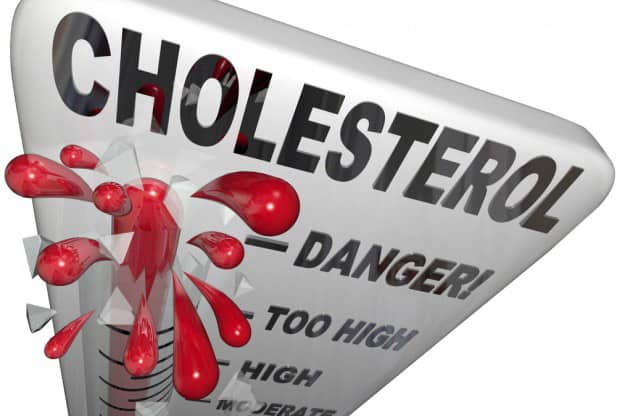Whey protein never fails to amaze and surprise me for its long list of potential benefits. One unexpected benefit of whey may be that of a mood elevator and antidepressant. This effect of whey is actually not a new finding. I wrote about that in an article on how whey may assist weight loss in LEF magazine almost a decade ago, but it deserves its own discussion I think.
Whey may elevate mood modulating levels of the crucial neurotransmitter serotonin. From my previous article “…Serotonin is involved in a wide range of psychological and biological functions, and influences mood, anxiety, and appetite. Healthy levels of serotonin are correlated with relaxation, calm, and an improved ability to cope with stress, whereas lower levels are associated with depression, anxiety, and poor appetite control.

Since serotonin is derived from the dietary amino acid tryptophan, scientists have speculated that increasing dietary tryptophan might increase serotonin levels. A recent study conducted in the Netherlands examined whether supplementing the diet with whey-derived alpha-lactalbumin, a tryptophan-rich whey constituent, would influence plasma tryptophan levels, reduce depression, or modulate concentrations of cortisol, the so-called “stress hormone.”
The Dutch investigators examined 29 highly stress-vulnerable subjects and 29 relatively stress-invulnerable subjects using a double-blind, placebo-controlled study design. After consuming a diet enriched with either whey-derived alpha-lactalbumin or sodium caseinate, the participants were exposed to experimental stress. Following the stressor, the scientists assessed diet-induced changes in plasma tryptophan and its ratio to other large neutral amino acids, as well as changes in mood, pulse rate, and cortisol concentrations.
In those fed the whey-derived alpha-lactalbumin diet, the ratio of plasma tryptophan to other amino acids was 48% higher than in those on the casein diet. In stress-vulnerable subjects, this was accompanied by a decrease in cortisol levels and reduced feelings of depression. The investigators found that supplementing stress-vulnerable subjects with whey-derived alpha-lactalbumin “improved coping ability, probably through alterations in brain serotonin.”(1)
The full paper is HERE for those who want the details. While that me be the most decisive study in terms of looking at specific endpoints of “stress-vulnerable subjects” it’s not the only study that finds alpha-lactalbumin – a major subfraction protein of whey – has an impact on tryptophan (Trp) and other large neutral amino acids (LNAA), and what’s referred to as Trp-LNAA ratio. Another study examined whether feeding alpha-lactalbumin protein in the evening consumption “…could improves alertness and performance on the morning after sleep, particularly in subjects with sleep complaints.” The study found the protein supplement did have benefits and concluded “Evening dietary increases in plasma tryptophan availability for uptake into the brain enhance sustained alertness early in the morning after an overnight sleep, most likely because of improved sleep.” For those with sleep issues, it may be worth taking a scoop of whey before bedtime. Perhaps most interesting, those listed as “poor sleepers” doing that “…was this accompanied by improved behavioral performance.” (2)
It should be noted another study found markers of increased serotonin synthesis with people ingesting an alpha-lactalbumin-enriched supplement combined with exercise, they were not able to demonstrate “…effects on appetite, food intake, macronutrient preference and mood.” (3)
Another route whey may benefit mood is via its lactoferrin content, a bio-active peptide with a wide range of potential benefits to human health and disease. While the effect needs to be reproduced in humans, a recent animal study suggests it acts as anti-depressant when the animals are put under stress. (4)
(1) Whey protein rich in alpha-lactalbumin increases the ratio of plasma tryptophan to the sum of the other large neutral amino acids and improves cognitive performance in stress-vulnerable subjects.
Am J Clin Nutr. 2002 Jun;75(6):1051-6.
Abstract
BACKGROUND:
Cognitive performance often declines under chronic stress exposure. The negative effect of chronic stress on performance may be mediated by reduced brain serotonin function. The uptake of the serotonin precursor tryptophan into the brain depends on nutrients that influence the availability of tryptophan by changing the ratio of plasma tryptophan to the sum of the other large neutral amino acids (Trp-LNAA ratio). In addition, a diet-induced increase in tryptophan may increase brain serotonergic activity levels and improve cognitive performance, particularly in high stress-vulnerable subjects.
OBJECTIVE:
We tested whether alpha-lactalbumin, a whey protein with a high tryptophan content, would increase the plasma Trp-LNAA ratio and improve cognitive performance in high stress- vulnerable subjects.
DESIGN:
Twenty-three high stress-vulnerable subjects and 29 low stress-vulnerable subjects participated in a double-blind, placebo-controlled, crossover study. All subjects conducted a memory-scanning task after the intake of a diet enriched with either alpha-lactalbumin (alpha-lactalbumin diet) or sodium caseinate (control diet). Blood samples were taken to measure the effect of dietary manipulation on the plasma Trp-LNAA ratio.
RESULTS:
A significantly greater increase in the plasma Trp-LNAA ratio after consumption of the alpha-lactalbumin diet than after the control diet (P = 0.0001) was observed; memory scanning improved significantly only in the high stress-vulnerable subjects (P = 0.019).
CONCLUSION:
Because an increase in the plasma Trp-LNAA ratio is considered to be an indirect indication of increased brain serotonin function, the results suggest that dietary protein rich in alpha-lactalbumin improves cognitive performance in stress-vulnerable subjects via increased brain tryptophan and serotonin activities.
(2) Evening intake of alpha-lactalbumin increases plasma tryptophan availability and improves morning alertness and brain measures of attention.
Am J Clin Nutr. 2005 May;81(5):1026-33.
Abstract
BACKGROUND:
Brain serotonin function is thought to promote sleep regulation and cognitive processes, whereas sleep abnormalities and subsequent behavioral decline are often attributed to deficient brain serotonin activity. Brain uptake of the serotonin precursor tryptophan is dependent on nutrients that influence the availability of tryptophan via a change in the ratio of plasma tryptophan to the sum of the other large neutral amino acids (Trp:LNAA).
OBJECTIVE:
We tested whether evening consumption of alpha-lactalbumin protein with an enriched tryptophan content of 4.8 g/100 g increases plasma Trp:LNAA and improves alertness and performance on the morning after sleep, particularly in subjects with sleep complaints.
DESIGN:
Healthy subjects with (n = 14) or without (n = 14) mild sleep complaints participated in a double-blind, placebo-controlled study. The subjects slept at the laboratory for 2 separate nights so that morning performance could be evaluated after an evening diet containing either tryptophan-rich alpha-lactalbumin or tryptophan-low placebo protein. Evening dietary changes in plasma Trp:LNAA were measured. Behavioral (reaction time and errors) and brain measures of attention were recorded during a continuous performance task.
RESULTS:
Evening alpha-lactalbumin intake caused a 130% increase in Trp:LNAA before bedtime (P = 0.0001) and modestly but significantly reduced sleepiness (P = 0.013) and improved brain-sustained attention processes (P = 0.002) the following morning. Only in poor sleepers was this accompanied by improved behavioral performance (P = 0.05).
CONCLUSION:
Evening dietary increases in plasma tryptophan availability for uptake into the brain enhance sustained alertness early in the morning after an overnight sleep, most likely because of improved sleep.
(3) Alpha-lactalbumin combined with a regular diet increases plasma Trp-LNAA ratio.
Physiol Behav. 2004 Jun;81(4):585-93.
Abstract
Brain serotonin influences food intake and mood. It is synthesised from tryptophan (Trp) of which uptake in the brain is dependent on plasma ratio of tryptophan to the sum of other large neutral amino acids (Trp-LNAA). A carbohydrate-rich diet increases this ratio, whereas a protein-rich diet decreases it. Yet, if the protein source is alpha-lactalbumin the ratio increases. It is, however, unknown whether this also happens in the context of a regular diet (15% protein). We studied the effect of an alpha-lactalbumin supplement combined with regular diet on plasma Trp-LNAA ratio, serum prolactin (marker of serotonin synthesis), food intake, appetite, macronutrient preference and mood. Eighteen healthy males participated in a double-blind, randomised, placebo-controlled, crossover study. One hour after breakfast they received a drink containing alpha-lactalbumin and carbohydrates (AS) or carbohydrates (PS) only. Plasma Trp-LNAA ratio, serum prolactin, food intake, appetite, macronutrient preference and mood were assessed before and 90 min after consumption of the supplement. Changes of plasma Trp-LNAA ratio differed (P<.001) between both supplements, increasing by 16% after AS and decreasing by 17% after PS. Decrease of serum prolactin was slightly smaller after AS than after PS (P=.083). Appetite, food intake, macronutrient preference or mood did not differ between supplements. We conclude that an alpha-lactalbumin-enriched supplement combined with a regular diet increases plasma Trp-LNAA ratio and may influence serum prolactin, but we could not demonstrate effects on appetite, food intake, macronutrient preference and mood.
Depression is a widespread neuropsychiatric illness whose etiology is yet mysterious. Lactoferrin (LF), an iron-binding glycoprotein, is reported to promote neuroprotection through its role in the modulation of oxidative stress and inflammation. The objective of the present research was to evaluate the efficacy of LF against chronic restraint stress (CRS)-induced depressive behavior in rats. Depression was evidenced by a reduced grooming time in the splash test and an increased immobility time in the tail suspension test (TST) and forced swimming test (FST). This effect was also accompanied by reduced GSH and serotonin levels and elevated lipid peroxidation and corticosterone levels in the hippocampus. Additionally, an exaggerated hippocampal inflammatory response was also shown by a rise in NF-κB (p65) and TNF-α levels and a reduced IL-10 level. Moreover, CRS substantially reduced the BDNF content as well as the protein levels of PI3K, Akt, and mTOR while boosting the GSK3β content. Interestingly, LF therapy significantly improved CRS-induced behavioral and biochemical aberrations, an effect which was suppressed upon pretreatment with LY294002 (PI3K inhibitor). This suggests that the antidepressant potential of LF may be mediated through the modulation of the PI3K/Akt/mTOR signaling pathway. Furthermore, LF succeeded in restoring 5-HT and corticosterone levels, diminishing oxidative stress and ameliorating the inflammatory cascades. Therefore, and for the first time, LF might serve as a promising antidepressant drug through targeting the PI3K/Akt/mTOR pathway.
Will Brink is the owner of the Brinkzone Blog. Will has over 30 years experience as a respected author, columnist and consultant, to the supplement, fitness, bodybuilding, and weight loss industry and has been extensively published. Will graduated from Harvard University with a concentration in the natural sciences, and is a consultant to major supplement, dairy, and pharmaceutical companies.
His often ground breaking articles can be found in publications such as Lets Live, Muscle Media 2000, MuscleMag International, The Life Extension Magazine, Muscle n Fitness, Inside Karate, Exercise For Men Only, Body International, Power, Oxygen, Penthouse, Women’s World and The Townsend Letter For Doctors.
He’s also been published in peer reviewed journals.
Will is the author of the popular e-books, both accompanied by private members forum access , Bodybuilding Revealed & Fat Loss Revealed.
You can also buy Will’s other books on Amazon, Apple iBook, and Barnes and Noble.







If I have High Evening and Bedtime Cortisol levels with Low Morning Cortisol levels would it be more beneficial to drink a Whey Isolate shake at Dinner and Before Bed?
Thanks!!